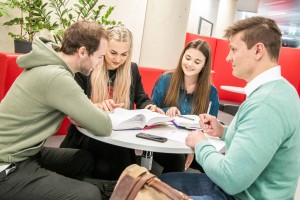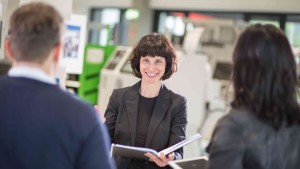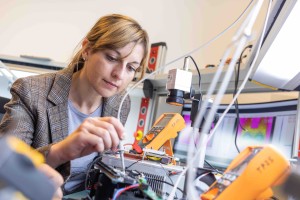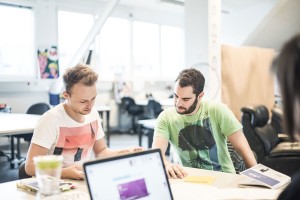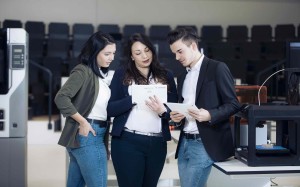Viktoria Holzmann
My internship at the Imperial College London, Department for Haematology.
Arrival and accommodation
Flights to London are relatively good value, provided that you book early enough. However the same cannot be said of accommodation in London. The rental price is generally cited per week, probably because the monthly rents are so shockingly high. I was at least fortunate enough that my student hall of residence was just a 10 minute walk from the hospital.
Workplace, colleagues, supervision
I completed my internship at a research institute at Imperial College London and was able to work on a research project focusing on ‘Targeting proteostasis addiction in cancer’. My re-sults were even included in the final paper. The team consisted of my supervisor Holger Au-ner, postdoc Katarzyna Parzych, with whom I primarily worked and Sandra Loaiza who was working on her PhD. Other research groups were also busy at work in the lab and we shared the lab equipment with them.
My working day was essentially as follows: I was shown something in practice which I would then repeat under supervision. Afterwards, I would work independently although I was al-ways able to ask to make sure I really understood everything. The focus was generally on understanding. I was given a range of reviews and articles, for example, to familiarise my-self with the topic. I was also able to turn to my supervisor with questions at any time.
There was a lab meeting every Wednesday which I was involved in from the start. The latest results and processes were discussed at the meeting. After the first few weeks of indepen-dent working, I presented my results and interpreted them, as well as I could. While I pro-bably wasn’t great at it, it was a really good exercise for me.
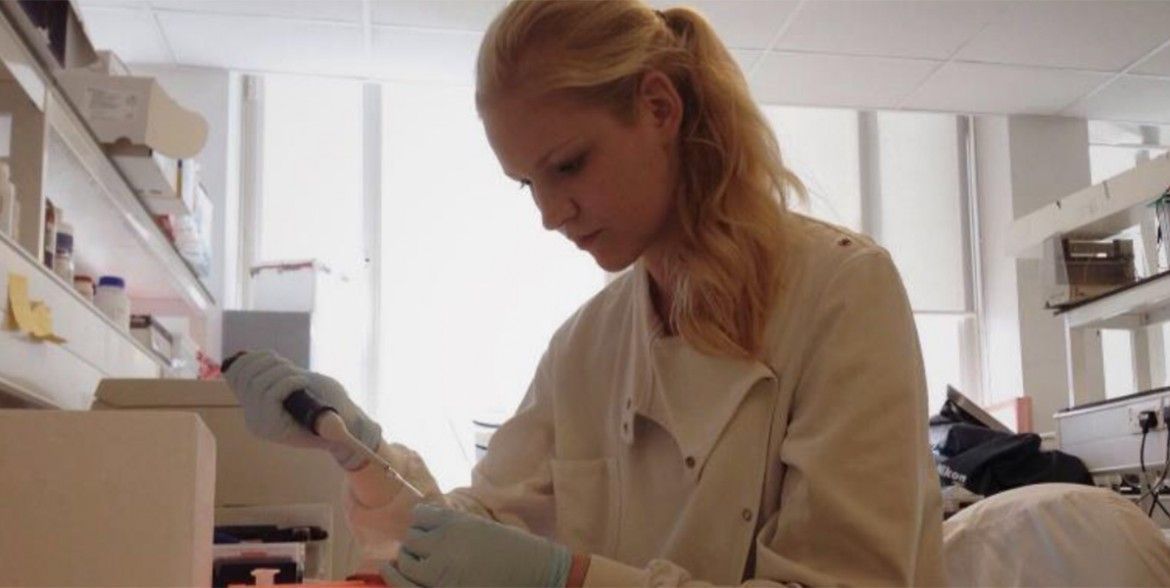
Specialist expertise
My work initially focused on the relative quantification of mRNAs in different genes so as to better understand the cellular response to proteotoxic stress, induced by specific inhibitors and nutrient deficiency. My primary role which I worked on independently was to produce cDNA from isolated mRNA from previous experiments, to carry out qPCRs and assess them using the ΔΔCt method.
I also had the opportunity to watch several western blots and was given my own cells ‘to play with’ for cell culturing. This made sterile working more routine and after destroying my first cell family through contamination by cultivating bacteria rather than cells, the process began to run smoothly. I was therefore allowed to continue to work in cell culture. In one experiment, I was involved from the start and was later able to repeat it on my own. The experiment involved inducing proteotoxic stress in lung cancer cells cultivated in different nutrient environments by adding CB-5083, borte-zomib and tunicamycin and inhibiting an enzyme in a cell under the same conditions to observe its influence on the expression of a certain gene. I worked on producing various culture media, on treating cells with medication, on harvesting cells and on extracting mRNA: all the steps required prior to evaluation of the experiment using qPCR. I then evaluated the results independently.
Land and culture
London for me is the most beautiful but unfortunately also the most expensive city I have ever visited. And it certainly isn’t the weather which attracts you there! Although the city is the same size as Austria in terms of inhabitants, London is also unbelievably green with its many small and large parks. In this city of millions, you can walk from a five-lane road straight into a rose garden where you cannot hear the traffic and lots of Londoners organise picnics at the weekend.
Lots of different nations come together in London and this is reflected in the dining culture in particular. In my opinion, you can give the British food a miss because you always have the option of eating Lebanese, Mexican, Thai, Malaysian, Spanish, Tibetan, Brazilian, Indian, Turkish, Greek, Argentinian or Ethiopian, to name but a few examples. Pub evenings are typically British and you can watch various sporting events here – in my case, the football European Championships – and meet new people with a beer in your hand.
There is always something happening in the city whether the Pride Parade, various pub crawls, dog racing, food markets or open-air events such as music festivals in London’s parks. The city is beautiful and so large – I never fail to be impressed by the fact that there are some 1000 different bus routes – that I didn’t manage to see everything at all during my 2.5 month stay. I didn’t want to return back to Austria and I know I will return to London one day, hopefully next time for longer.

